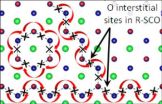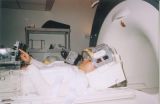(Press-News.org) MINNEAPOLIS – People with blood type AB may be more likely to develop memory loss in later years than people with other blood types, according to a study published in the September 10, 2014, online issue of Neurology®, the medical journal of the American Academy of Neurology.
AB is the least common blood type, found in about 4 percent of the U.S. population. The study found that people with AB blood were 82 percent more likely to develop the thinking and memory problems that can lead to dementia than people with other blood types. Previous studies have shown that people with type O blood have a lower risk of heart disease and stroke, factors that can increase the risk of memory loss and dementia.
The study was part of a larger study (the REasons for Geographic And Racial Differences in Stroke, or REGARDS Study) of more than 30,000 people followed for an average of 3.4 years. In those who had no memory or thinking problems at the beginning, the study identified 495 participants who developed thinking and memory problems, or cognitive impairment, during the study. They were compared to 587 people with no cognitive problems.
People with AB blood type made up 6 percent of the group who developed cognitive impairment, which is higher than the 4 percent found in the population.
"Our study looks at blood type and risk of cognitive impairment, but several studies have shown that factors such as high blood pressure, high cholesterol and diabetes increase the risk of cognitive impairment and dementia," said study author Mary Cushman, MD, MSc, of the University of Vermont College of Medicine in Burlington. "Blood type is also related to other vascular conditions like stroke, so the findings highlight the connections between vascular issues and brain health. More research is needed to confirm these results."
Researchers also looked at blood levels of factor VIII, a protein that helps blood to clot. High levels of factor VIII are related to higher risk of cognitive impairment and dementia. People in this study with higher levels of factor VIII were 24 percent more likely to develop thinking and memory problems than people with lower levels of the protein. People with AB blood had a higher average level of factor VIII than people with other blood types.
INFORMATION:
The study was supported by the National Institute of Neurological Disorders and Stroke, National Institutes of Health, U.S. Department of Health and Human Services and National Heart, Lung, and Blood Institute.
Learn more about brain health at AAN.com/patients.
The American Academy of Neurology, an association of 28,000 neurologists and neuroscience professionals, is dedicated to promoting the highest quality patient-centered neurologic care. A neurologist is a doctor with specialized training in diagnosing, treating and managing disorders of the brain and nervous system such as Alzheimer's disease, stroke, migraine, multiple sclerosis, brain injury, Parkinson's disease and epilepsy.
For more information about the American Academy of Neurology, visit http://www.aan.com or find us on Facebook, Twitter, Google+ and YouTube.
Media Contacts:
Rachel Seroka, rseroka@aan.com, (612) 928-6129
Michelle Uher, muher@aan.com, (612) 928-6120
Can your blood type affect your memory?
2014-09-10
ELSE PRESS RELEASES FROM THIS DATE:
Angling chromium to let oxygen through
2014-09-10
RICHLAND, Wash. -- Researchers have been trying to increase the efficiency of solid oxide fuel cells by lowering the temperatures at which they run. More efficient fuel cells might gain wider use in vehicles or as quiet, pollution-free, neighborhood electricity generating stations. A serendipitous finding has resulted in a semiconducting material that could enable fuel cells to operate at temperatures two-thirds lower than current technology, scientists reported August 18 in Nature Communications.
In an attempt to create a metal oxide with the properties of metal, researchers ...
Association between sunshine and suicide examined in study
2014-09-10
Lower rates of suicide are associated with more daily sunshine in the prior 14 to 60 days.
Light interacts with brain serotonin systems and possibly influences serotonin-related behaviors. Those behaviors, such as mood and impulsiveness, can play a role in suicide.
The authors examined the relationship between suicide and the duration of sunshine after mathematically removing seasonal variations in sunshine and suicide numbers. They analyzed data on 69,462 officially confirmed suicides in Austria between January 1970 and May 2010. Hours of sunshine per day were ...
Study examines vitiligo, alopecia areata and chronic graft vs. host disease
2014-09-10
Vitiligo (depigmentation of the skin) and alopecia areata (AA, patchy or complete hair loss) in patients with chronic graft-vs-host disease (GvHD) following a stem cell transplant appear to be associated with having a female donor and the sex mismatch of a female donor and male recipient.
GvHD is a frequent complication of donor stem cell transplants because donor cells can attack the recipient's body and cause death and other illnesses. The skin is the most commonly affected organ. The underlying biology of chronic GvHD has not been fully explained. The authors ...
'Green wave' explains migratory bird routes
2014-09-10
Ithaca, N.Y.—Migratory songbirds enjoy the best of both worlds—food-rich summers and balmy winters—but they pay for it with a tough commute. Their twice-a-year migrations span thousands of miles and are the most dangerous, physically demanding parts of their year.
Surprisingly, for many North American species the best route between summer and winter homes is not a straight line, according to new research published in the Proceedings of the Royal Society B. In spring, the study shows, birds follow areas of new plant growth—a so-called "green wave" of new leaves and numerous ...
York U neuroscientists decode brain maps to discover how we take aim
2014-09-10
TORONTO, Sept. 10, 2014 - Serena Williams won her third consecutive US Open title a few days ago, thanks to reasons including obvious ones like physical strength and endurance. But how much did her brain and its egocentric and allocentric functions help the American tennis star retain the cup?
Quite significantly, according to York University neuroscience researchers whose recent study shows that different regions of the brain help to visually locate objects relative to one's own body (self-centred or egocentric) and those relative to external visual landmarks (world-centred ...
Happy Camp Fire in California and 790 Fire in Oregon
2014-09-10
The 790 Fire in Oregon began as a lightning strike on July 31, 2014. Over 3,000 acres have been affected by this fire which is 54% contained. In the next 12 to 48 hours there is a potential risk to Sky Lakes Wilderness and natural resources including the Northern Spotted Owl habitat, Coho habitat, water quality, the Pacific Crest Trail, and Cherry Creek Research Natural Area. Area and trail closures exist on the Pacific Crest Trail. The weather is not helping the fire fighters with gusty winds and low relative humidity. The operational objectives include keeping the ...
Diverse neighborhoods may help infants' social learning
2014-09-10
Experiencing diverse communities by hearing different languages at the park, on a bus or in the grocery store may make babies more open-minded in their social learning, a new study finds.
While previous research has shown that direct interactions with parents and caregivers shape early cognitive development, the influence of the broader community beyond those direct experiences has not been as carefully examined. In a new study published by the journal Cognition, University of Chicago Psychology Department researchers investigated whether the variety of languages in infants' ...
Will the real unemployment rate please stand up?
2014-09-10
PRINCETON, N.J.—America's unemployment rate — most recently reported as 6.1 percent — has long been used to gauge the country's economic well-being. But a new working paper released by Princeton University's Woodrow Wilson School of Public and International Affairs highlights the difficulty in estimating the exact unemployment rate, though changes in the official measure still signal important movements in the economy.
The research, published by the National Bureau of Economic Research, finds that the true unemployment rate may be higher or lower than recent reports ...
Sequencing and analysis of gibbon genome sheds light on its complex evolution
2014-09-10
PORTLAND, Ore. — A team led by an Oregon Health & Science University researcher has sequenced and annotated the genome of the only ape whose DNA had yet to be sequenced — the gibbon, an endangered small ape that inhabits the tropical forests of Southeast Asia.
The team's work, published in the Sept. 11 edition of Nature, gives scientists new insight into the evolution of the gibbon genome and its extraordinary number of chromosomal rearrangements. Chromosomal rearrangements are structural changes in the DNA that are often problematic in other species — including causing ...
Gibbon genome and the fast karyotype evolution of small apes
2014-09-10
BATON ROUGE – LSU's Mark Batzer, LSU Boyd Professor and Dr. Mary Lou Applewhite Distinguished Professor, along with Research Assistant Professor Miriam Konkel and Research Associate Jerilyn Walker in Department of Biological Sciences in the College of Science, contributed to an article featured on the cover of the scientific journal Nature, titled "Gibbon Genome and the Fast Karyotype Evolution of Small Apes."
An abstract of the article can be found at http://www.nature.com/nature/journal/v513/n7517/full/nature13679.html?WT.ec_id=NATURE-20140911. The issue of Nature will ...




